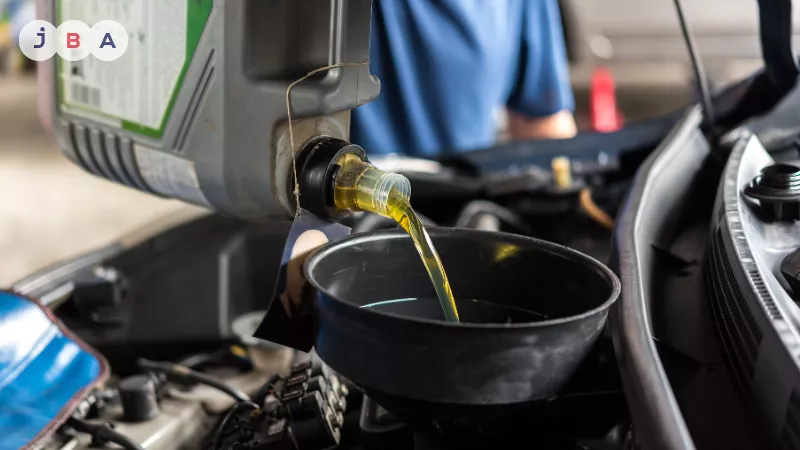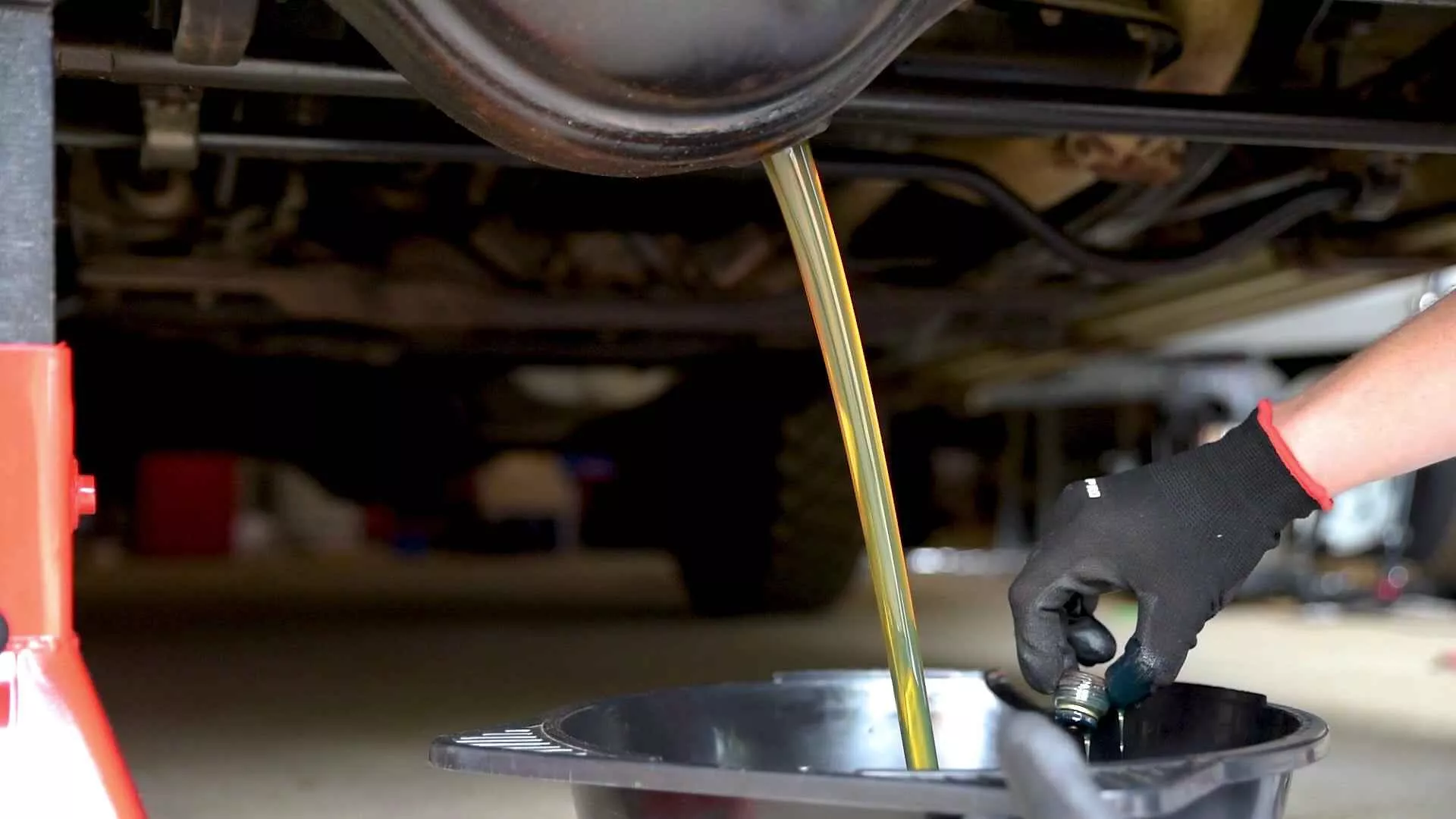- Participate Online Auction
- login
- Register Auction
-
JBA IndonesiaBantuan & Panduan

There are several differences between engine oil and differential oil that are important to understand so you don’t make mistakes in vehicle maintenance. Oil is a vital component that helps keep a car’s performance optimal. Without proper and well-maintained oil, both the engine and transmission system can wear out quickly and risk serious damage.
In this article, we will thoroughly discuss the differences between engine oil and differential oil, including their functions and the right time to replace them. Here’s the complete explanation for you.
To understand the differences between engine oil and differential oil, you first need to know the definition of each. Engine oil is a lubricant specifically designed to work inside a car engine. Its role includes lubricating components to prevent wear, cooling the engine from excess heat caused by friction, and protecting the engine from dirt and rust. With quality and well-maintained engine oil, the engine’s performance remains optimal and its lifespan is extended.
Meanwhile, differential oil is the lubricant used in the car’s differential. This oil works to lubricate the gears in the final transmission system that transfers power from the engine to the wheels. Its role is crucial in reducing friction between gears, keeping rotations smooth, and preventing wear caused by heavy loads when the vehicle is running.
From the explanation above, you may already have an idea about the differences. To make it clearer, here are the main distinctions:
Engine oil functions to lubricate components in the combustion chamber, prevent wear, and help cool the engine from excess heat caused by friction. It also keeps the engine clean from dirt and rust.
Differential oil, on the other hand, works in the final transmission system or differential. Its main function is to lubricate the gears so that power from the engine can be delivered to the wheels smoothly without excessive friction.
Engine oil generally has a thinner viscosity. This allows it to flow quickly throughout the engine, especially when the engine is first started. Differential oil, by contrast, is formulated to be thicker because it must protect the gears from heavy pressure and friction. Its thickness also makes it more durable compared to engine oil.
Engine oil is used in the engine, the main driving component of the vehicle. It plays a crucial role in lubricating engine parts to keep them running smoothly and to prevent premature wear.
Differential oil, however, is used in the differential, the component that transfers power from the engine to the wheels. The differential ensures the wheels rotate according to direction and speed, especially when the vehicle turns. Because it carries a heavier workload, differential oil is made thicker to better protect the gears from friction and high pressure.
Another difference lies in the replacement interval. Engine oil generally needs to be changed more often, every 5,000–10,000 km or as recommended by the manufacturer because the combustion chamber causes the oil to quickly become contaminated by heat and dirt.
Differential oil, on the other hand, has a longer replacement interval, usually every 40,000–50,000 km, as it works in a closed system and is not directly exposed to combustion.

Sumber: supercheapauto.com.au
If engine oil is not replaced on time, its quality will degrade and it will no longer lubricate the engine components effectively. As a result, friction increases, the engine overheats, and parts wear out faster. In the long term, this can cause serious engine damage.
Old differential oil loses its viscosity and lubrication capability. When this happens, the gears inside the differential are no longer properly protected from friction and pressure. As a result, components can wear out quickly, cause humming or grinding noises while driving, and in the long term, potentially lead to severe damage. Repairing a damaged differential is costly and time-consuming, making timely oil replacement essential.
Delaying oil changes may seem like saving money initially, but the risk of engine or differential damage can lead to much higher expenses. Routine oil changes are relatively inexpensive compared to the cost of an engine overhaul or replacing damaged differential components.
Understanding the differences between engine oil and differential oil, along with their replacement schedules, is essential to keeping your vehicle in top condition.
For those currently looking for a used car, a safe and transparent option is through JBA’s car auctions. As a trusted private auction house, JBA offers flexible auctions that can be joined both online and offline. For more information or questions about JBA auctions, please contact us via WhatsApp at +62 817-0993-078.

There are several causes of...

Affordable sedans priced...

The function of...
